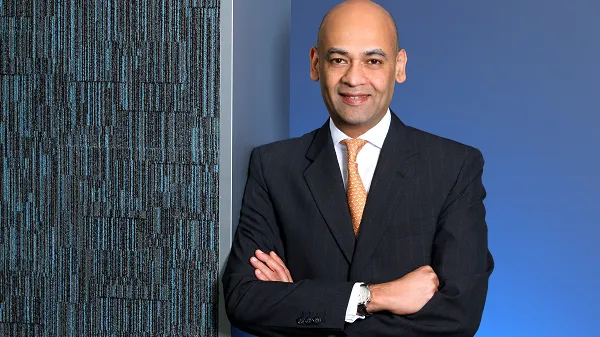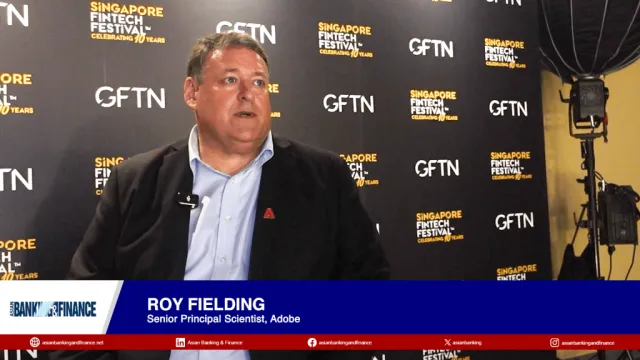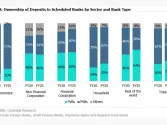
Amol Gupte reveals how Citi takes the fintech revolution as a positive disruption
The bank facilitates co-creation with fintechs which helped bag seven consecutive quarters of revenue growth in Asia Pacific.
Amol Gupte is the ASEAN Head and Citi Country Officer (CCO) for Singapore since 2016. In this exclusive interview with Asian Banking & Finance, he talks about the current status of the bank and what lies ahead.
Where is Citi today since the crisis of 2008?
Citi in 2018 is very different from Citi a decade ago. We have crossed an inflection point and are simpler and safer as an organisation, and have a strong business model that positions us well for growth. In Asia, Citi delivered seven consecutive quarters of revenue growth for our consumer banking business and we expect this positive momentum to continue across the franchise.
Since the 2008 financial crisis, we have been rebuilding our credibility and relationships with regulators. At the same time, we have invested in controls to improve processes across risk, compliance, and audit, and have taken extensive steps to educate our workforce on ethics and execution. Getting this right is a key priority for Citi as our license to run and grow our business hinges on us adhering to the highest possible standards and ensuring our unwavering commitment to systemic responsibility.
Like many of my colleagues at Citi, I am very proud of the progress that we have made. Besides being in good stead from a regulatory, capital and liquidity standpoint, we are uniquely positioned to support the growth aspirations of our corporate and institutional clients to scale beyond boundaries through our unique global footprint. On the consumer banking front, Citi’s operating model enables us to build capabilities and leverage our scale at a global level to serve our clients seamlessly through the use of technology to deliver a remarkable client experience.
Today, Citi is a focussed, mission-driven firm, driven to being the best for our clients, and I am confident that we are well-poised to capture the opportunities ahead.
What changes have taken place in Citi in terms of digitalisation and how do you view the threat from fintech players?
I see digitalisation and innovation as two sides of the same coin. Many of the innovations that we are witnessing today are powered by new digital technologies and Citi has a legacy of innovation. From financing the first transatlantic telephone cable in 1865, the 1904 Panama Canal construction in the next century, pioneering the modern ATM in 1977 to launching Smart Banking Branches in recent years, Citi has been leveraging innovation to enable progress for the communities and clients that we serve throughout our 200-year history. When it comes to innovation, we pride ourselves on being a step ahead of trends.
Just to cite some examples, seven years ago in 2011, we introduced the innovation lab concept to the banking industry in Singapore and rolled out not just one lab but two Innovation Labs in Singapore—one for our consumer business and one for our Treasury and Trade Solutions (TTS) business. Today, just about just about every bank has a similar lab to incubate and accelerate ideas from concept to execution!
In 2014, we rolled out Citi Mobile Challenge, a global initiative where we invited developers to build solutions that are capable of running on Citi's digital platforms globally. Subsequently in 2015, we rolled out a Citi fintech unit to explore disruptive business models and capabilities as well as partnerships with developers. In 2017, we collaborated with public and private sector allies to launch the Citi Tech for Integrity Challenge (T4I) in an effort to encourage technology innovators from around the world to create solutions to promote integrity, accountability and transparency in the public sector.
Much has been said in recent years about fintech players posing a serious threat to banks. At Citi, we hold a different perspective. We see the fintech revolution as a positive disruption as it helps us to reimagine our business to serve our clients better. In 2016, we launched our Global API Developer Hub to connect with developers and enable them to build innovative client solutions faster than ever before. It marked the evolution of Citi's technology to open architecture, facilitating co-creation with fintech companies and consumer brands across the globe for the benefit of our clients.
Most recently, Singapore was the first market for Citi globally to launch Citi Bot on Facebook Messenger. Chatbots are computer programmes designed to simulate conversation with human users and Citi’s Chatbot is designed to engage customers in real-time. Citi Bot is an example of a product that has been created with inputs from our staff and clients. It reinforces Citi’s open architecture approach to integrate ourselves into key ecosystems of our clients to engage them where they are most digitally active.
On the corporate and institutional front, CitiDirect BE is the foundation of our digital client strategy. We continue to add new features to this single global platform that provides our clients with access to global payments and receivables, liquidity management services, trade and FX solutions across online, mobile and tablet. Through this platform, a Corporate Treasurer or CFO is able to manage their business and daily treasury needs anytime, anywhere with the same level of security and efficiency regardless of device.
Another example is Citi Velocity, our analytics and trading platform, which provides our clients with unparalleled access to Citi's research including proprietary analytics and product specific models as well as trading capabilities for foreign exchange, interest rate, commodity and futures products. To date, Citi Velocity has received over 50 industry awards, including those for most innovative and best overall single dealer platform.
Technology “hardware” aside, mindsets, organisational structures and operating models also need to change to be a true digital bank. We are building an environment where Citibankers are encouraged to be open and curious to explore and experiment.
Throughout Citi’s 200-year history, our continued existence was only possible because we rose up to the occasion every time the global tectonic plates shifted. Today, the revolution is in the area of fintech which provides a huge opportunity for us. Tomorrow, it could be something else. Each time the tectonic plates shifted beneath us, we reinvented ourselves and emerged stronger to ensure we remained relevant to our clients.
What are the areas that Singapore should advance as the ASEAN chair?
As ASEAN chair this year, there are three key areas where we see opportunities for Singapore to further promote and advance as a bloc—Belt Road Initiative (BRI), e-commerce, and cybersecurity.
We see first-hand the opportunities that BRI brings to Citi’s clients across our network. BRI comprises over 65 markets which contribute around 30% of GDP and make up 40% of global trade. At this nascent stage, developing countries involved in the BRI are experiencing acceleration in infrastructure investments and attracting more capital inflows. In the longer term, BRI will also boost already strong trade between China and ASEAN. Today, ASEAN is China's third-largest trading partner behind the European Union and the United States, whilst China is ASEAN’s biggest trading partner. This is even before BRI truly kicks off. In our view, BRI is a huge latent potential for ASEAN waiting to be unleashed.
The e-commerce revolution is another big evolving opportunity. The way we see it, the stars are aligned to make e-commerce succeed in ASEAN largely due to a promising economic outlook, rising middle class, large population, growth in internet users and rising mobile device penetration rate. E-commerce has been the fastest growing client sector for Citi’s TTS business in ASEAN in the last 2-3 years. We expect double-digit revenue growth for our ASEAN e-commerce business in the next three years. To support the growth, we have been investing in operational infrastructure and building connectivity.
To reap dividends in our new digital economy, there is one area that we absolutely need to get right: Cybersecurity. As a region, there must be continuous innovation, dialogue and security co-operation to be ahead of emerging cyber threats. We should also continue to work towards greater rationalisation and harmonisation of regulation around cybersecurity.
We also see many other areas that Singapore can do to further drive ASEAN’s success. For example, in deepening the region’s capital markets and developing ASEAN as an asset class. All in all, I am optimistic of the role Singapore can play in lifting ASEAN to become even more attractive as a bloc for investors.



















 Advertise
Advertise












